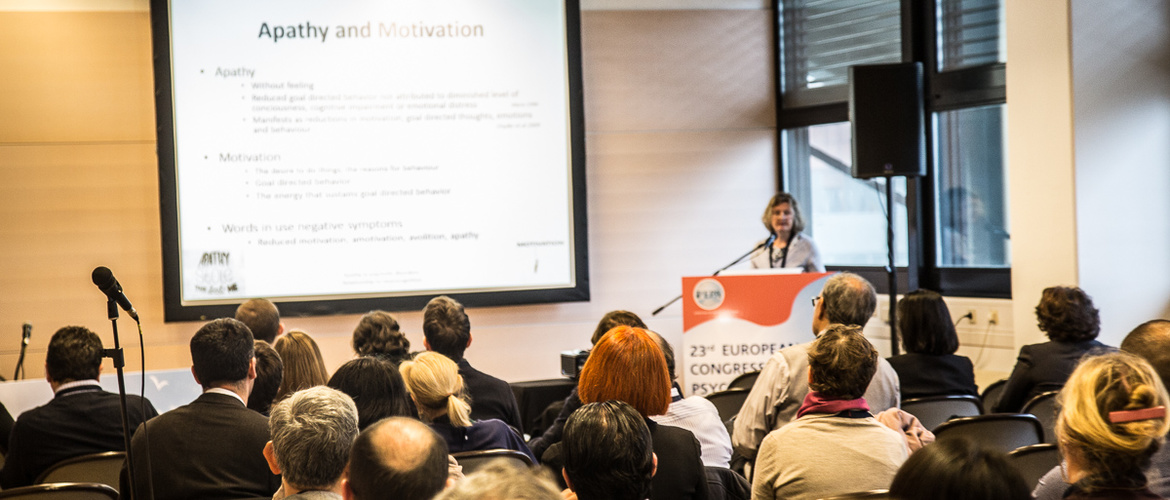
Choose a channel
Check out the different Progress in Mind content channels.

Progress in Mind

Rain and sunshine alternated on Monday in Vienna and at the congress there was a veritable ‘rainbow’ of a symposium on the topic of Treatment goals beyond symptom reduction. The symposium faculty considered the many goals that we should aspire towards for our psychiatric patients. Our correspondent reports highlights.
Thinking beyond symptom reduction for patients with psychiatric disorders is a concept gaining increasing traction.
In many fields of medicine, quality of life (QOL) measures are considered valid treatment outcomes and are included within effectiveness measures. But according to Professor Levent Küey of the Psychology Department of Istanbul Bilgi University in Turkey explained, QOL can be a blurry concept in mental health.
Quoting Murakami on the subject of marathon running, where the author notes that “Pain is inevitable, suffering is optional”, Prof Küey said that while a runner can quit when the suffering gets too much, the same is not true for psychiatric patients.
He reminded delegates that psychiatrists treat their patients not just as a clinical encounter but in the context of a dynamic human interaction where the patient joins the relationship with the aim of overcoming their suffering – not just erasing a checklist of symptoms.
In depression for example he highlighted the importance of establishing a therapeutic alliance with patients and using drug and non-drug based treatment modalities to help achieve goals agreed in collaboration with the patient. Prof Küey said it was vital to consider the patient’s sense of self, space, surroundings and future. He said even when patients have ‘recovered’ from a depressive episode they carry that experience with them in a way that is very different from looking back on a bad case of ‘flu. They need to be helped to reach a new state, enriched rather than overshadowed by depression.
Professor Andreas Heinz of the Department of Psychology and Psychiatry at Charite CCM & St Hedwig Hospital in Berlin, Germany gave a moving lecture in which he urged delegates to think about ‘recovery’ as a treatment goal. He identified four pillars to recovery: shared decision-making, a sense of coherence, empowerment and resilience.
Professor Heinz highlighted the need to help many psychiatric patients overcome social isolation, stressing the importance not just of mental healthcare services but society as a whole in helping achieve that goal.
The concept of functioning was then tackled by Professor Pavel Mohr from the Prague Psychiatric Centre, Czech Republic. He described symptom reduction as the bulls-eye, efficacy target, but reminded the meeting that treatment effectiveness targets need to include both social functioning and QOL. Global burden of disease figures identify that psychiatric disease take 7 of the top 20 positions for conditions associated with Years-Lost-to-Disability and Professor Mohr highlighted that most of the costs for such conditions related not to direct treatment costs but to loss of function and productivity.
Last to take the podium was Austria’s own Professor Michael Musalek of the Anton Proksch Institute in Vienna. He urged delegates to make autonomy and a joyful life key treatment goals.
He said that recovery was not just about becoming ‘a good member of society again’ and indeed he said that recovery needs to be seen as an open goal – where the road to the goal allows patients to discover what in life provides them with joy. And he stressed that this doesn’t mean looking to hit the highs – but finding their potential and realizing and feeling a long-lasting sense of joy.
This means focusing not on illness but on life and looking beyond evidence-based medicine to human-based medicine. He described a programme he operates that provides what he calls both the ‘frame’ and the ‘atmosphere’ for patients to explore the pursuits, interests and activities that try to achieve an autonomous patient life rich with beauty and joy.
Our correspondent’s highlights from the symposium are meant as a fair representation of the scientific content presented. The views and opinions expressed on this page do not necessarily reflect those of Lundbeck.